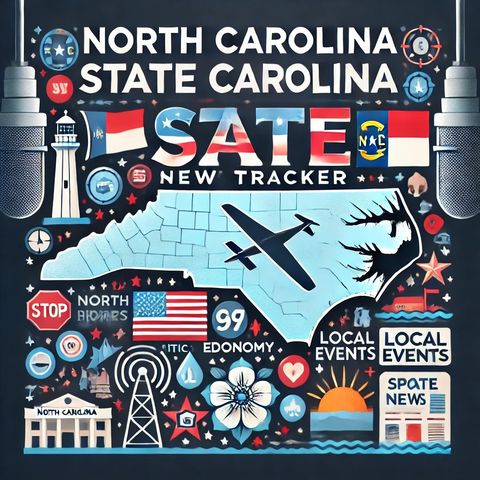16 NOV. 2024 · North Carolina continues to navigate a complex landscape of political, economic, and environmental challenges. The state's recent election has left several key races undecided, with recounts looming in the near future. The North Carolina Supreme Court seat race is particularly close, with Associate Justice Allison Riggs, a Democrat, trailing Republican challenger Jefferson Griffin by about 3,400 votes out of over 5.5 million cast[1]. This tight margin sets the stage for possible recounts next week, as state law allows a trailing candidate to seek a machine recount when the margin is 10,000 votes or less.
In other political news, Governor Roy Cooper has urged the General Assembly to prioritize funding for Western North Carolina's recovery from Hurricane Helene, which caused $53 billion in damages, over spending millions on private school vouchers[3]. The governor emphasized the need for significant investment in rebuilding critical infrastructure, homes, businesses, schools, and farms damaged during the storm. This comes as the legislature plans to spend $463 million on unaccountable private school vouchers, which Cooper argues would disproportionately hurt rural counties and exacerbate the state's budget shortfall.
On the economic front, North Carolina has seen significant developments in healthcare. The state's Medicaid expansion has been recognized with a national award, with over 570,000 people enrolling in the program since its launch in December 2023[4]. This record enrollment is attributed to extensive outreach efforts by the North Carolina Department of Health and Human Services, which included collaboration with community partners across all 100 counties.
However, the state also faces a child care crisis, as highlighted in a new documentary, "Take Care," which examines the impact of inadequate child care on families, employers, and the economy[5]. The film showcases the urgency of the situation through the stories of diverse voices across North Carolina, emphasizing the need for lasting solutions to support children's healthy development, allow parents to work, and keep businesses running.
In terms of environmental and weather updates, Hurricane Helene's devastating impact on Western North Carolina remains a pressing concern. The storm's destruction has left significant recovery needs, with Governor Cooper urging the General Assembly to prioritize funding for these efforts[3].
Looking ahead, several key events and developing stories are on the horizon for North Carolina. The state's election results will continue to unfold, with recounts and canvassing work expected to be completed by November 26. The General Assembly will reconvene next week, with Governor Cooper's budget recommendations and the fate of private school vouchers on the agenda. Additionally, the ongoing recovery efforts in Western North Carolina will remain a critical focus, as the state works to rebuild and recover from the devastating impacts of Hurricane Helene. As North Carolina navigates these challenges, residents and policymakers alike will be watching closely to see how these developments shape the state's future.


